CHP leader Özel demands President Erdoğan convince 17.5 million CHP voters first for new constitution
In an interview with Duvar, Turkish main opposition CHP leader Özgür Özel has demanded that President Erdoğan convince the 17.5 million people who voted for the CHP in the local elections as the first step for a new constitution. "Those who voted for me do not want the existing constitution to be violated. They do not want the ECHR decisions not to be implemented. They do not want the Constitutional Court to be ignored by the first instance court," he said.
Ceren Bayar / DUVAR
Turkish main opposition Republican People’s Party (CHP) leader Özgür Özel on May 25 gave an interview to Duvar.
Özel said he was pleased that after his meeting with President Recep Tayyip Erdoğan, sick prisoner generals convicted for their role in the “postmodern coup” of 1997 were released.
When asked the most urgent step to be taken for the normalization process, Özel replied as the Gezi Park trial. “It is putting Turkey in serious trouble both inside and outside the country. (Hopefully) Turkey will not be in such a difficult situation in foreign policy and that this great injustice will be eliminated as soon as possible.”
Özel also demanded justice in the economy, and taxation, as well as in the judiciary. “It is necessary to discuss the struggle for justice and the struggle for the economy through tax justice.”
CHP leader Özgür Özel was interviewed by Gazete Duvar Editor-In-Chief Barış Avşar, and Ankara reporters Nergis Demirkaya and Ceren Bayar. Below is the translation of the interview:
We are talking about a picture of “normalization” that emerged after the local elections, in which your statements were also effective. The most concrete development was the release of the Feb. 28th (post-modern coup) generals. However, the release was ruled on the same day as the verdicts in the Kobanê case were given, which you criticized as a “political trial.” DEM Party co-chair Tuncer Bakırhan also pointed to the verdicts of the Kobanê during the discussion on normalization and said, “Normalization is taking place except for Kurds.” This was also criticized as “certain issues will be excluded from normalization” or “normalization will not cover certain areas.” How do you evaluate it?
Such a question or observation is legitimate, but I am not the addressee. Because if the Republican People's Party had been silent on the Kobanê case and satisfied with the February 28 case, then we would also be standing in the area open to criticism. But we followed the Kobanê case with 10 deputies. We emphasized that the verdict was unlawful. We are following the issue closely.
After the Nov. 5th (CHP) congress, we called all the leaders on Dec. 31. After the congress, Abdullah Güler from the AKP called me as the parliamentary group chair to congratulate me, so I called Abdullah Bey and said, “I congratulate your group on the New Year.” In other words, the first step towards what they call normalization was taken on Dec. 31, not on April 1 after the March 31st local elections.
But, on April 1, the Republican People's Party, with the responsibility of being the leading party, has completely put aside the old discussions. On Eid, I called all the leaders, we requested an appointment with the chair of the Justice and Development Party (President Erdoğan), which received the most votes after the Republican People's Party. We started meetings with the leaders of other political parties because we are now the leading party. We are the largest social democratic party in the world with the highest number of votes. We had a responsibility and we took that step.
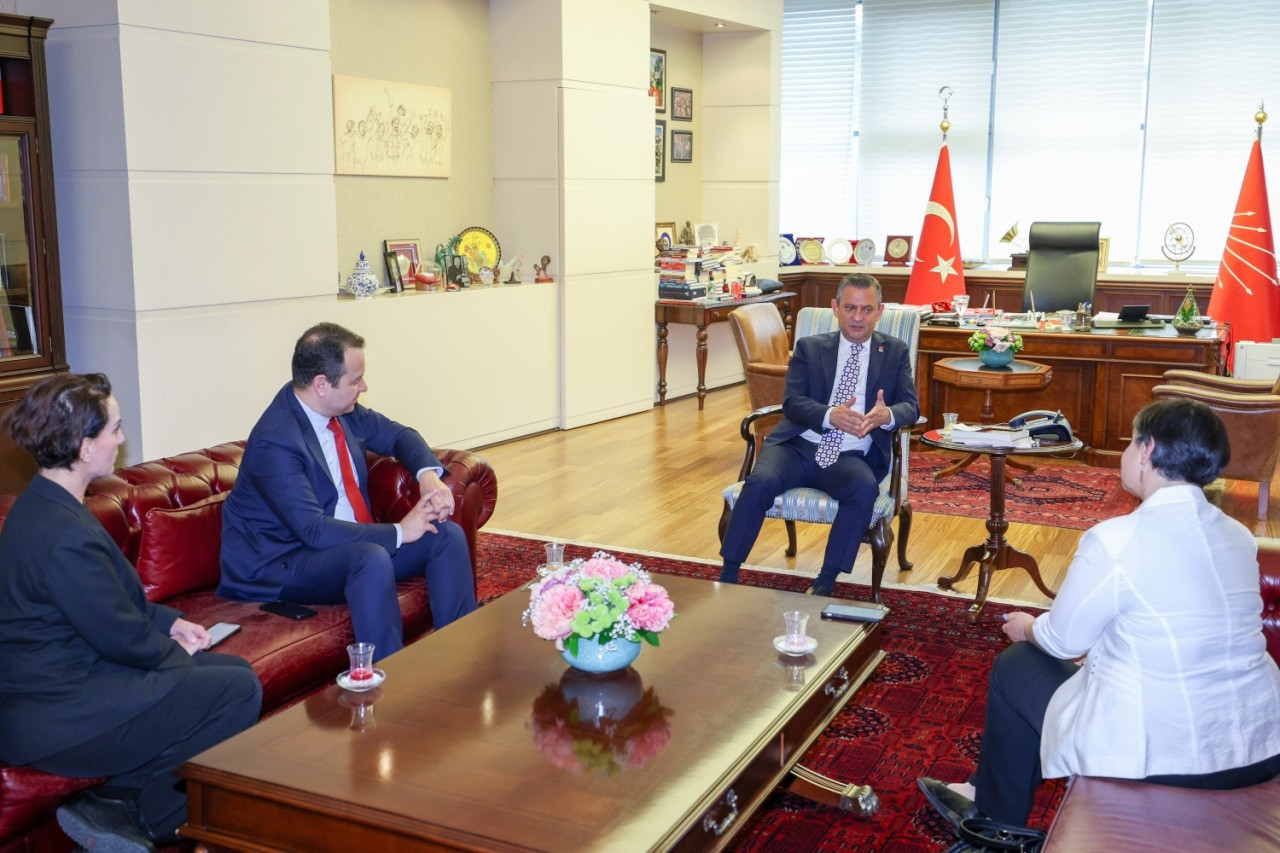
The reason for this step is not softening as some people say. This is normal. This is how it should be. Politics cannot be done without dialog, without saying hello, with resenting each other. Because 17.5 million voters voted for us. 15 million voters voted for the AKP. These people live together, they are not sulking. That is why we will talk. The responsibility of being the leading party requires this. The responsibility of being the main opposition party has not disappeared. Because Tayyip Erdoğan was given the executive duty last year. And the responsibility of being the main opposition requires opposition.
I made public what I discussed with Mr. Erdoğan when I met with him. I was pleased that the February 28 issue, which was one of the items of that meeting, was resolved. But I also criticized the Kobanê issue. We will continue to criticize it.
Unappointed teachers, and low pensions were on the agenda in that meeting. There is no progress there. I hold rallies with the responsibility of being the opposition. We negotiate and struggle with the responsibility of being the leading party. A part of political struggle is negotiation. That is to say, how to do something or to convey a demand. If that demand is fulfilled, you thank them, if not, you continue to criticize them harshly.
What is the most urgent step you expect for a real normalization? And what other steps are you expecting?
The Gezi Park issue. It is putting Turkey in serious trouble both inside and outside the country. I went to the Parliamentary Assembly of the Council of Europe, I visited the Turkish delegation of the Assembly, its president is Mr. Türkeş (AKP MP Tuğrul Türkeş). We had a meeting in full agreement. That is why I am following closely and hopefully, so that Turkey will not be in such a difficult situation in foreign policy and that this great injustice will be eliminated as soon as possible.
In addition, there are very serious economic expectations. Starting with pensioners. There are very serious problems in 7-8 areas. The minimum wage is too low for the recipient and too high for the giver. Because the giver is trying to compete with India, for example in textiles. There are too many structural problems. For example, the dollar exchange rate is too low for exporters and too high for our citizens. And this turns into a huge cost of living. There are big dilemmas here. To solve these dilemmas, we need to address these structural problems. While strengthening the state's economy, it is necessary to give up the preference of doing so on the backs of the poor.
There is a demand for tax justice. I attach much more importance to the issue of tax justice than many other issues that are being discussed in public today, because tax injustice is at the forefront of everything. 65 percent is an indirect tax, 25 percent is the income tax of laborers, which is deducted from the salaries of workers, pensioners, and civil servants, and the remaining 11 percent is the tax paid by those who should really pay tax, those who earn money. However, it should be the other way around. Those who earn more should pay more tax.
If we make a self-criticism: In the past, we have expressed the search for justice and democracy a lot and argued that the economy will not improve without improvement in these areas. This is a very fundamental thesis. But it doesn't resonate with the rurals. Because they say, 'what they are saying does not satisfy me'. Without giving up on this thesis, it is necessary to discuss the struggle for justice and the struggle for the economy through tax justice.
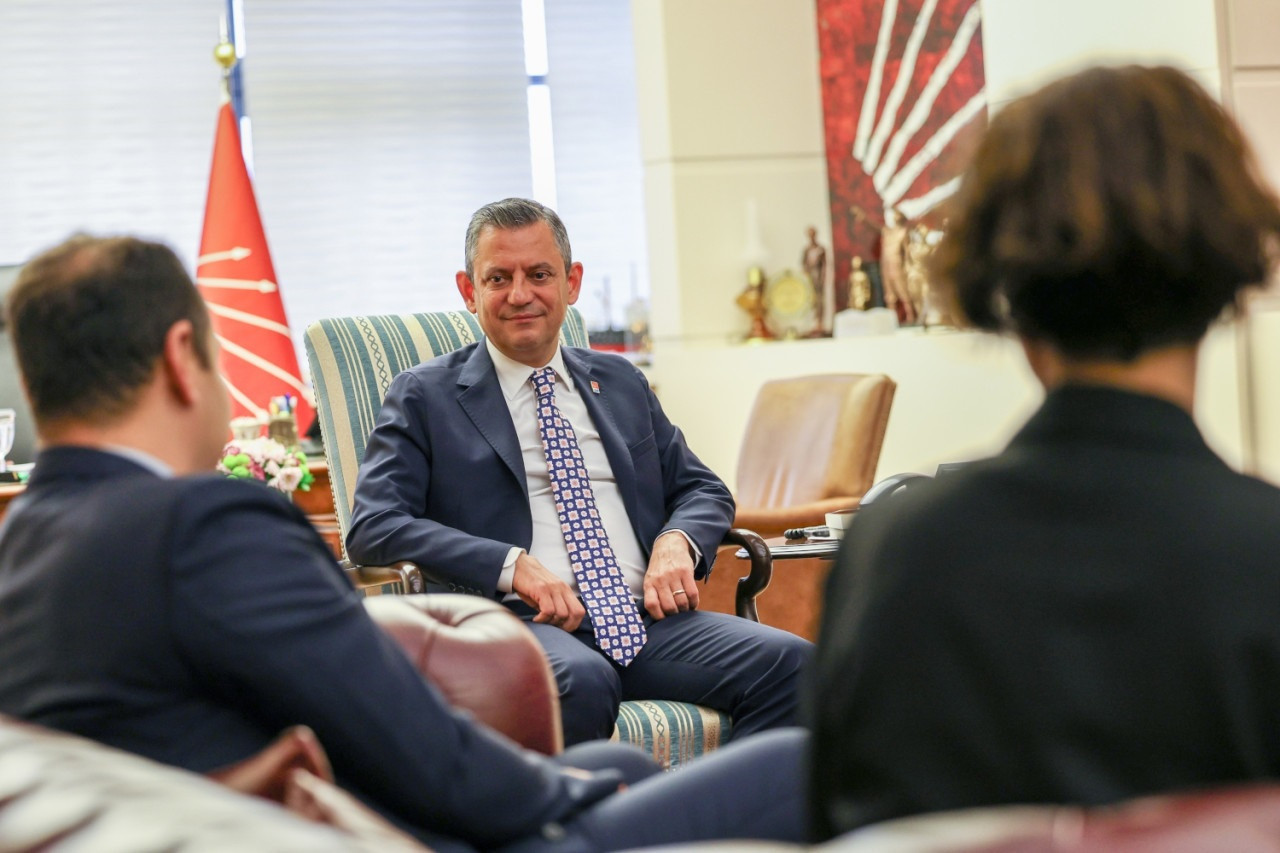
Finance Minister Mehmet Şimşek's program was considered as a 'return to normal' in the economy and received great support. Since the implementation of the program began, however, we have seen a picture that has led to the further impoverishment of the people and has also affected the results of the local elections. Is Turkey doomed to this program until another election? Is a populist economic model impossible? Will you have a package of proposals for the government?
Tax justice, tax reform. It won’t happen without doing this. A system where the poor, those living below the hunger threshold, pay no taxes at all, where indirect taxes are almost zero. We also need to completely reform the inheritance law. Someone leaves his child an inheritance that will last for seven generations, while the child of the poor inherits poverty from his father. In the past, pensioners in this country were able to buy a car, a house, or at least one of them with their retirement bonuses or the loans they took out while working. Now, a civil servant, worker, laborer, journalist, or teacher without a house or a car cannot own a house or a car.
Mehmet Şimşek is rational in his own rationality. Rational for the wealthy, rational for those favored by the AKP. For the people we represent, it is completely irrational.
Going back to normalization, what do you think about the comments that the MHP is acting as a brake, for the normalization process? Does the MHP want to prevent normalization?
It is the duty of all of us to normalize politics. Devlet Bahçeli also took the necessary step by responding positively to our request for a meeting appointment. Some people suggested that we should visit Bahçeli before the DEM Party. I said, 'No way'. Such a thing is not true.
Everyone will surely do what is necessary for normalization. And those who do not will enter into another division. Mr. Bahçeli did his part by making an appointment and conducting a very healthy negotiation. This is the normalization of politics. But Turkey is so hungry and demanding for normalization that people rightly want everything to be normalized. They want injustices to normalize, they want the economy to normalize.
Can the MHP end normalization? Despite the citizens, despite the demands of the citizens, no one can finish anything. But if there is a demand for normalization in Turkey, it will continue. It is seen that the citizens have such a demand. Those who adapt to this will be rewarded; those who resist will pay the price.
I don't think Mr. Bahçeli has this intention. But there are such groups in his party and such burdens on his back that I think he has been under serious strain lately.
President Erdoğan commented on his meeting with you and said, “The meeting was positive and productive. We were always ready to keep in touch with the opposition, but the previous administration did not allow us to do so. CHP was able to withstand the Yenikapı spirit for two or three weeks under Kemal Kılıçdaroğlu.” We understand that he thinks you are a part of the Yenikapı spirit. Is that so? What is your definition of the Yenikapı spirit?
If Mr. Erdoğan affirms what has happened and what will happen and wants to continue, if he defines it as the “Yenikapı Spirit,” this is his definition, it is good. We characterize this as “the development of the political space created for us by our self-confident politics after March 31st.”
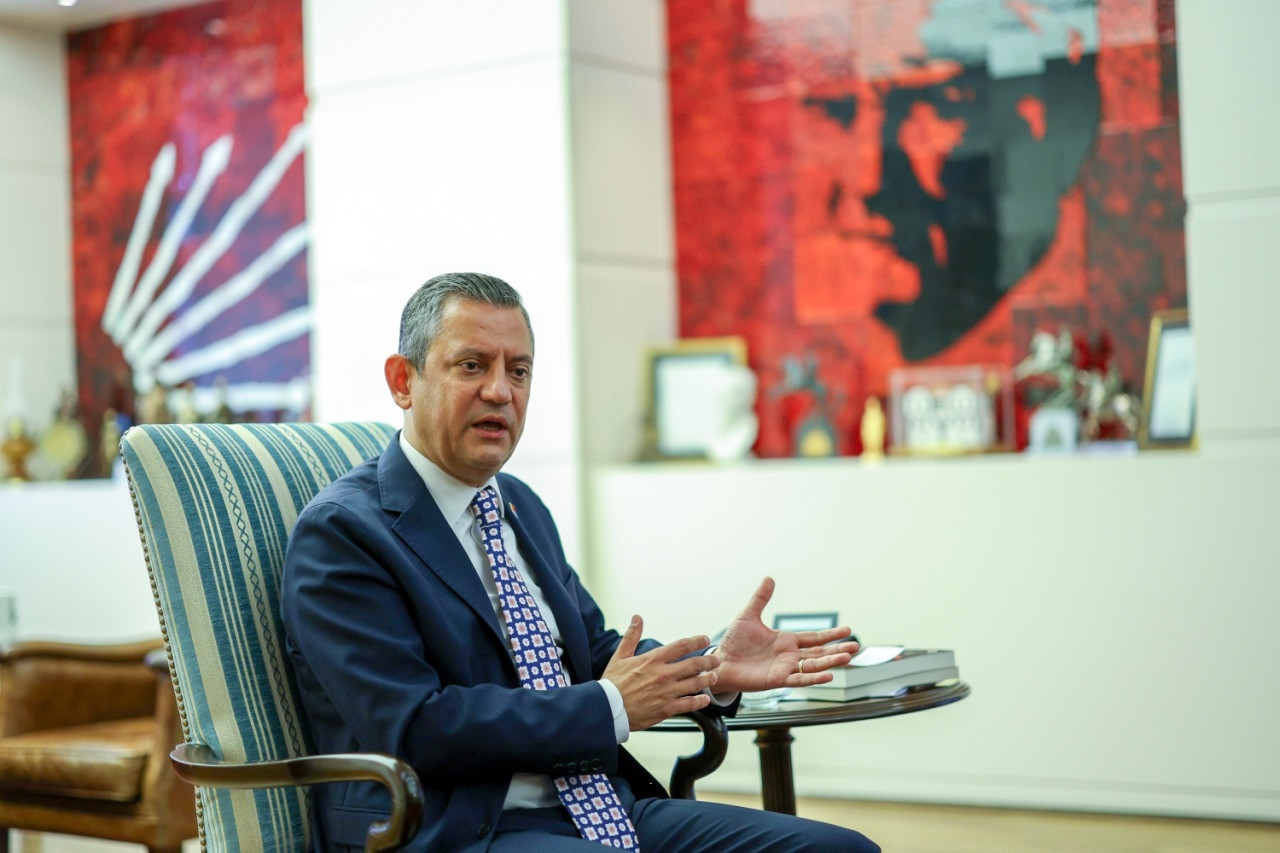
But if they look at the “Yenikapı Spirit” as being against the coup and taking a position against the coup, our stance on the night of July 15 is clear. This stance against the coup would not make us a part of the People's Alliance.
Let me remind you that the President criticized Mr. Kemal (Kılıçdaroğlu) with a reminder of the Yenikapı Spirit. But if you look at what happened in the 15 days after July 15, 2016 he declared a state of emergency on the 7th day. Now let's give Mr. Kemal his due. Mr. Kemal received a phone call from then-Prime Minister Binali Yıldırım. I was with him by coincidence and I heard the following words about the declaration of the state of emergency (from Kılıçdaroğlu): “We cannot support it. Let someone defend democracy, Mr. Prime Minister,” and the CHP opposed the declaration of the state of emergency.
What happened then? The state of emergency, which they said would not last even three months, lasted for years. They held a referendum and a general election during the state of emergency.
Do you see a possibility of a constitutional referendum in the coming period?
Let's say we set up a Constitutional table. There is no point in me sitting there. Those who voted for me did not vote for me to 'go and make a constitution under these conditions'. First, convince 17.5 million people. Then I will have to sit anyway. There are conditions for this. Those who voted for me do not want the existing constitution to be violated. They do not want the ECHR decisions not to be implemented. They do not want the Constitutional Court to be ignored by the first instance court. Also, those who voted for me do not want a pension of 10,000 liras. They do not want 17,000 liras minimum wage. You cannot make a constitution without convincing them. The constitution is a matter of social consensus.
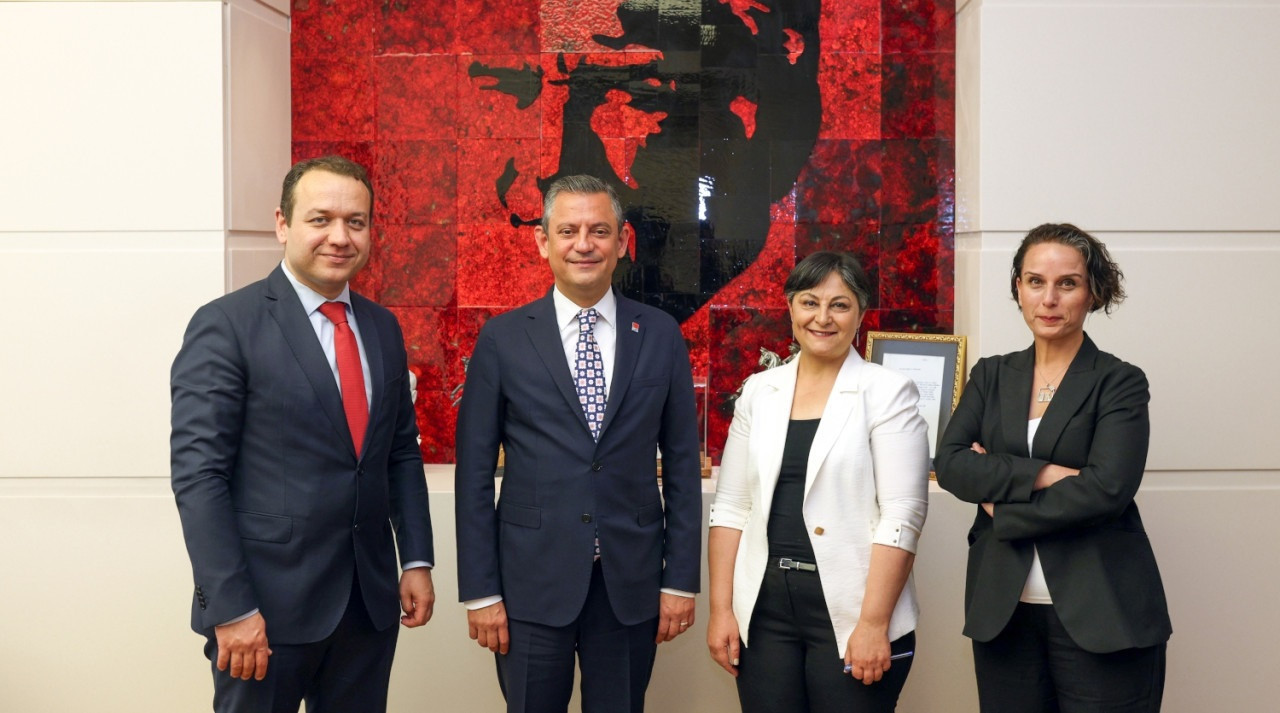
A change is also expected in the AKP after the local elections. Do you see a capacity for change?
It is not my job to advise, guide or comment on the AKP. But here's the thing; there was a period when the AKP was making some changes. There was also a period when it was communicating the change. It has not been doing this for a long time. And the nation is looking at whether you are making the change in words or in reality. The message of the last elections is this: The party that actually changed itself, changed its chair, its administration, its discourse, its politics was rewarded. Those who did not change lost. We talked about this during the last İYİ Party visit. Now we will watch together how the change in the İYİ Party will turn out. But going to March 31st without changing would have been the biggest mistake. I explained this during the whole congress process. I said, 'If we don't change, we will pay a price.' The voters will decide whether the AKP has the capacity to change or not.
With the March 31 local elections, you were able to determine the administration of the Union of Municipalities of Turkey. Is there an alleged rivalry between Ekrem İmamoğlu and Mansur Yavaş?
We will determine its president. Before that, the AKP and MHP determined it and did not allow anyone to join the administration. We will cooperate as much as possible. We will open it to other parties in a fair way. There are great opportunities not only for the CHP but for all municipalities in Turkey. We will manage it very well.
Allegations of rivalry between İmamoğlu and Yavaş?
There is no. There is no rivalry where I am. We manage that process very well. We will not cause such a crisis.
(English version by Alperen Şen)

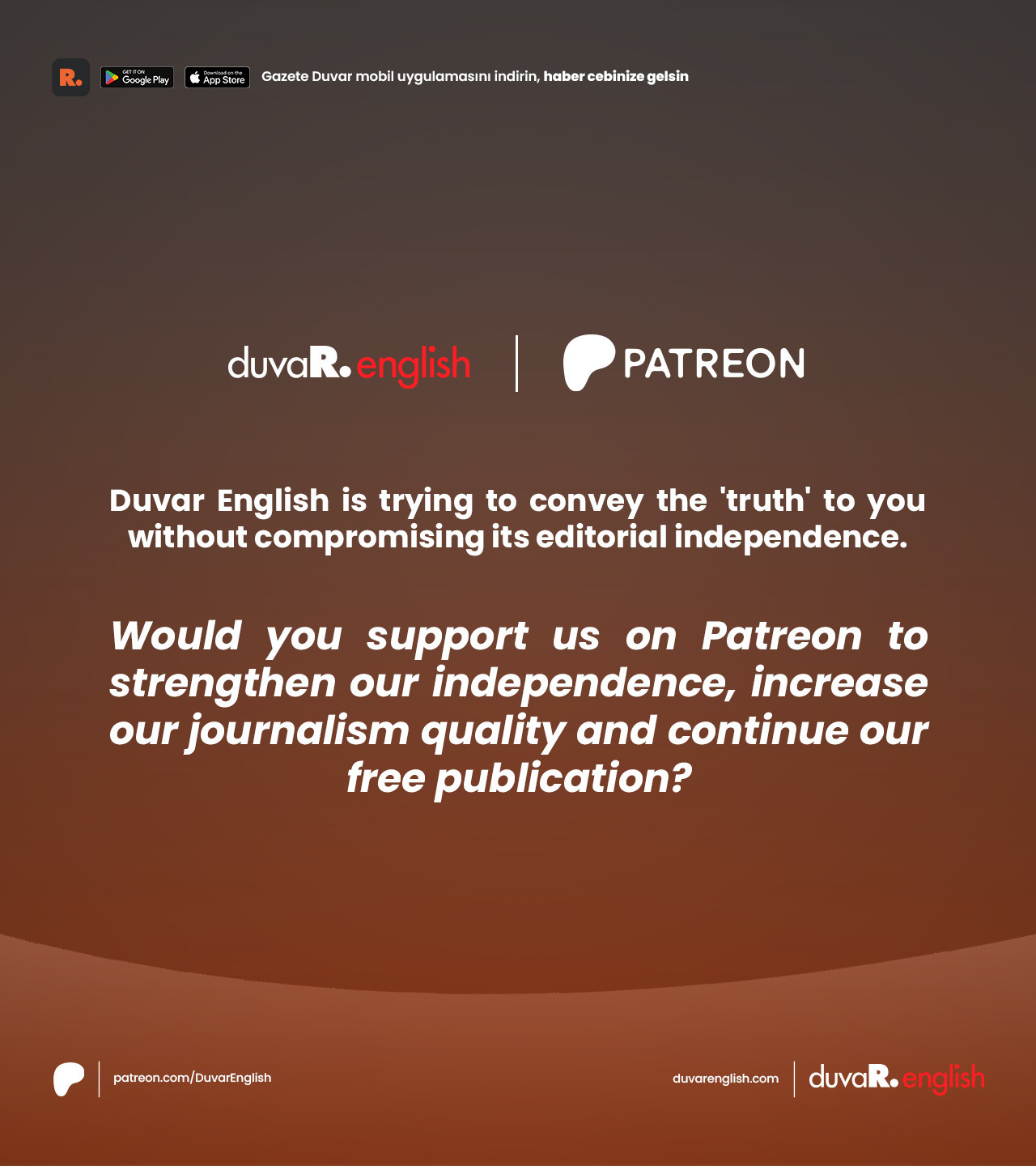
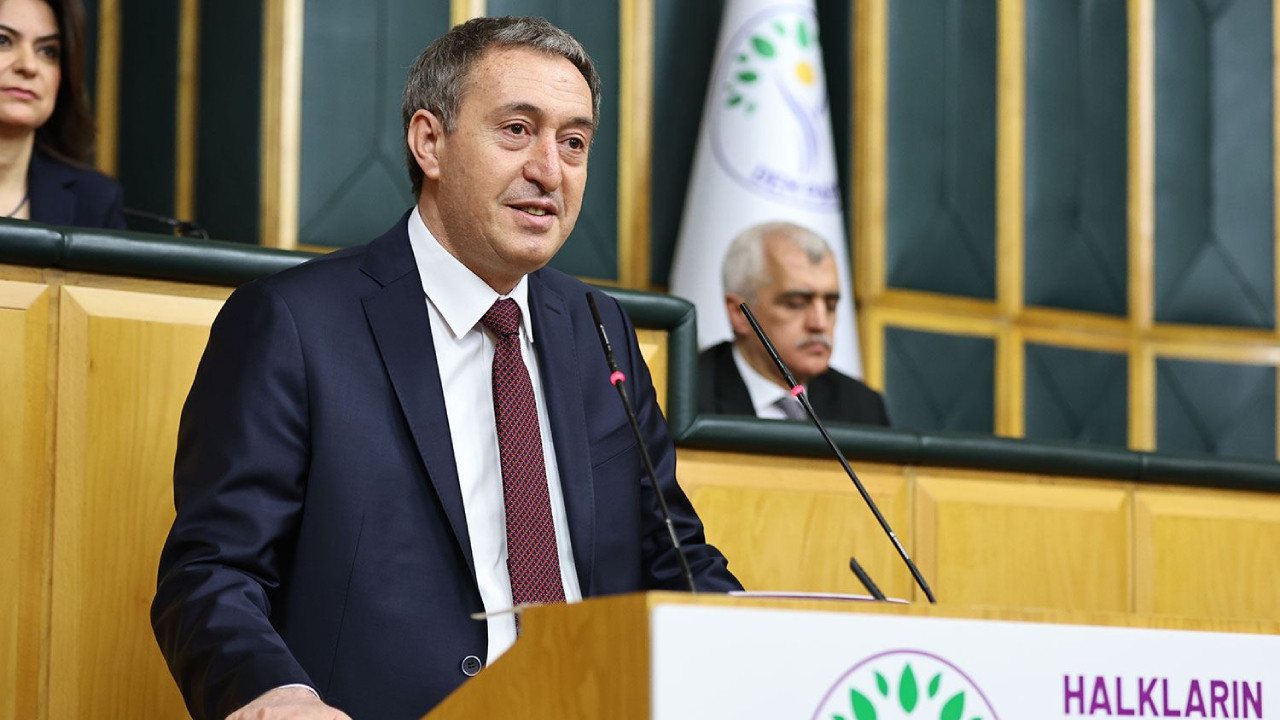 DEM Party to be more visible in western Turkey, says co-chairPolitics
DEM Party to be more visible in western Turkey, says co-chairPolitics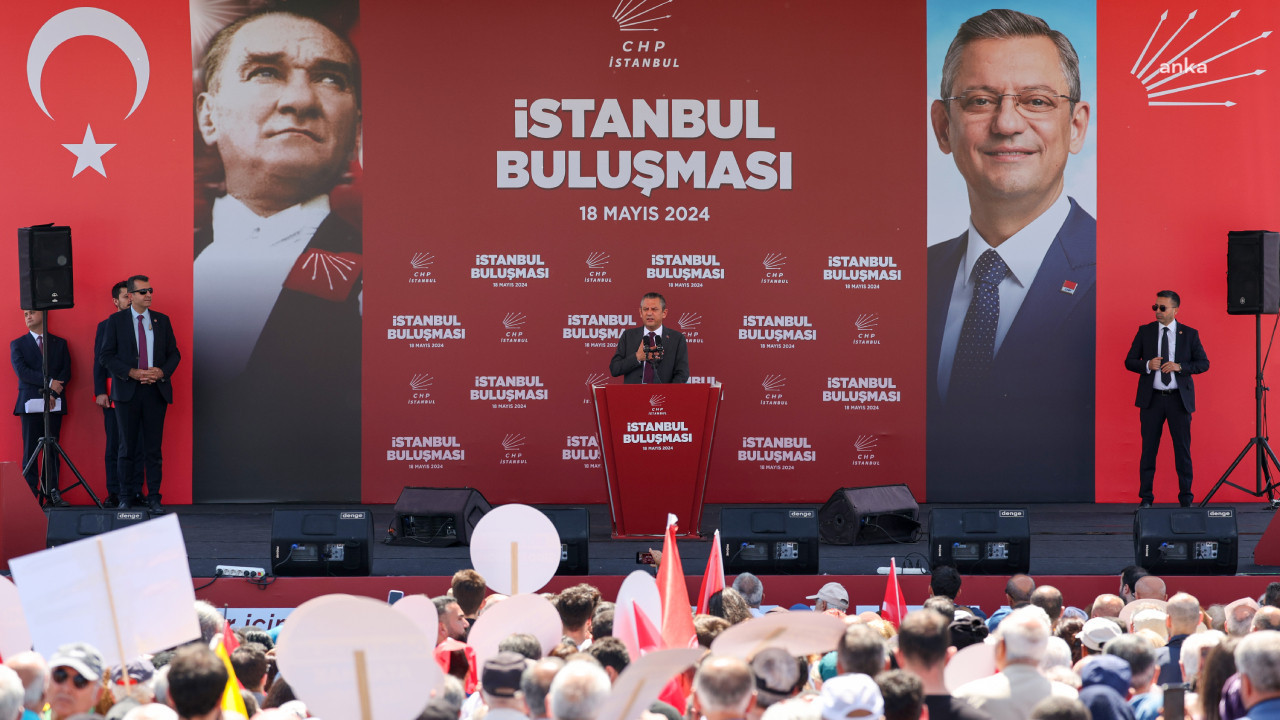 Turkish main opposition CHP holds 'Great Education Rally'Politics
Turkish main opposition CHP holds 'Great Education Rally'Politics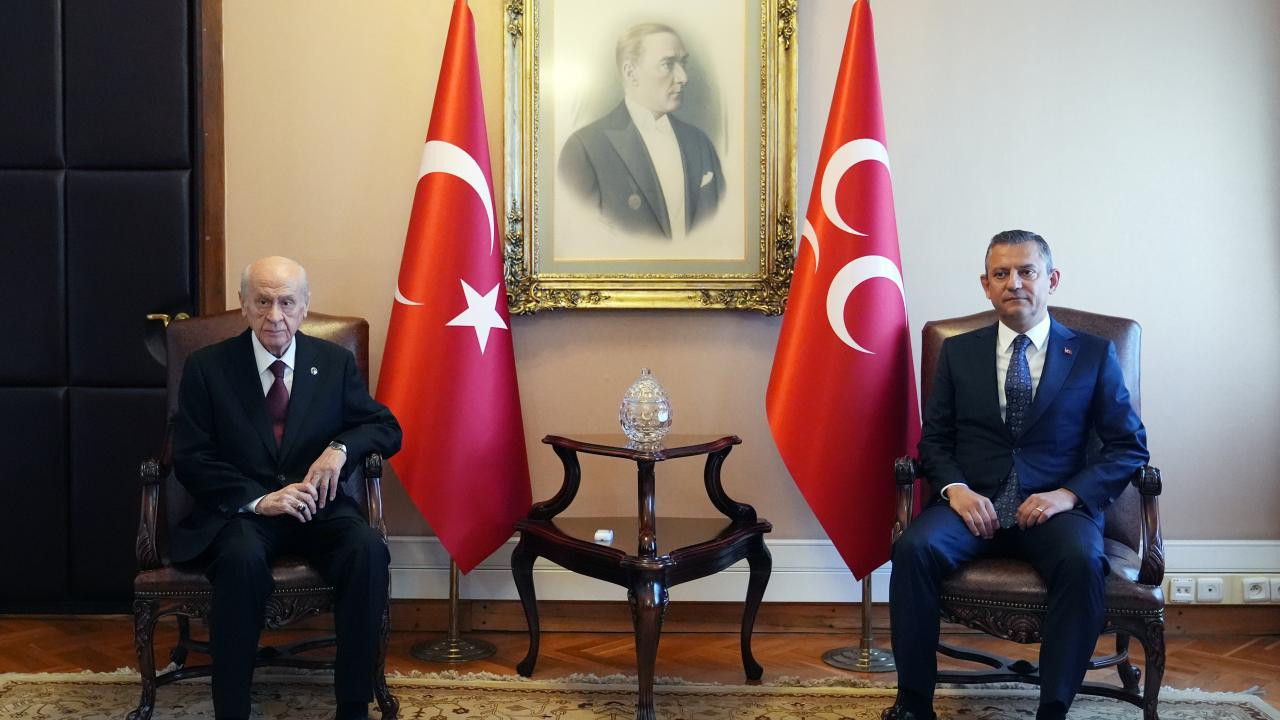 Turkey’s main opposition chair meets with government’s far-right ally after seven yearsPolitics
Turkey’s main opposition chair meets with government’s far-right ally after seven yearsPolitics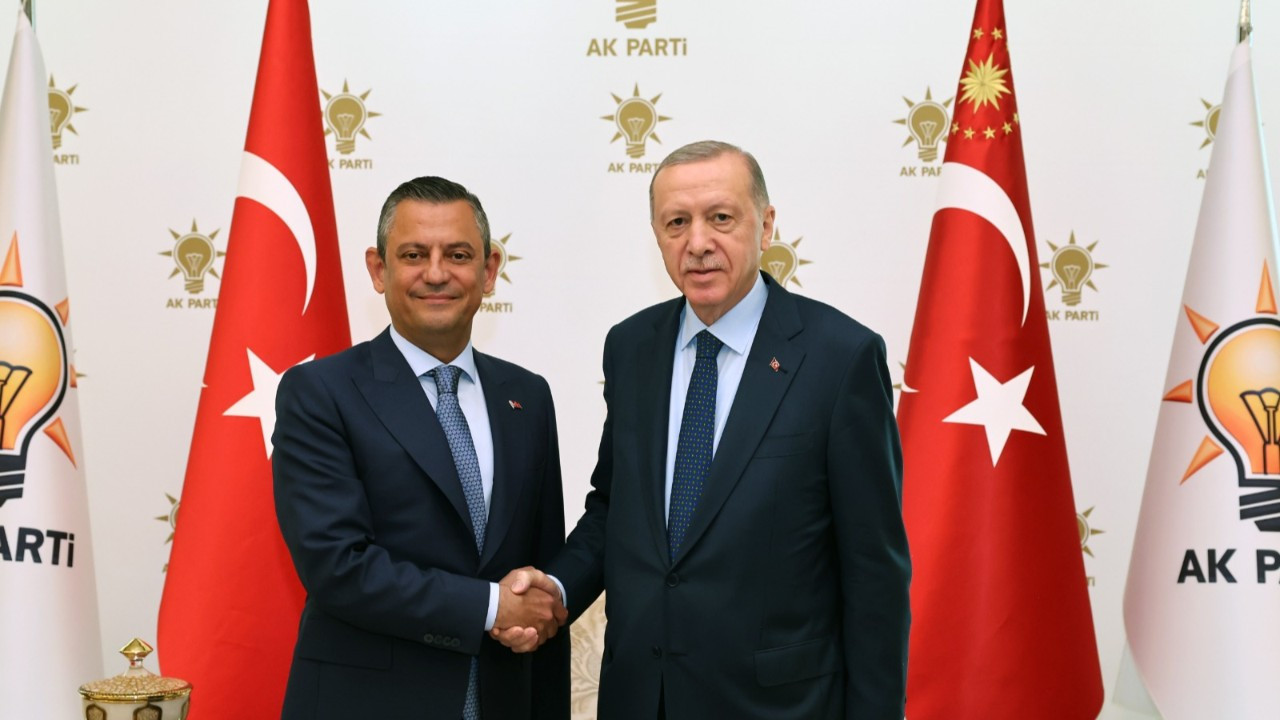 Turkey's Erdoğan meets main opposition CHP leader for first time in eight yearsPolitics
Turkey's Erdoğan meets main opposition CHP leader for first time in eight yearsPolitics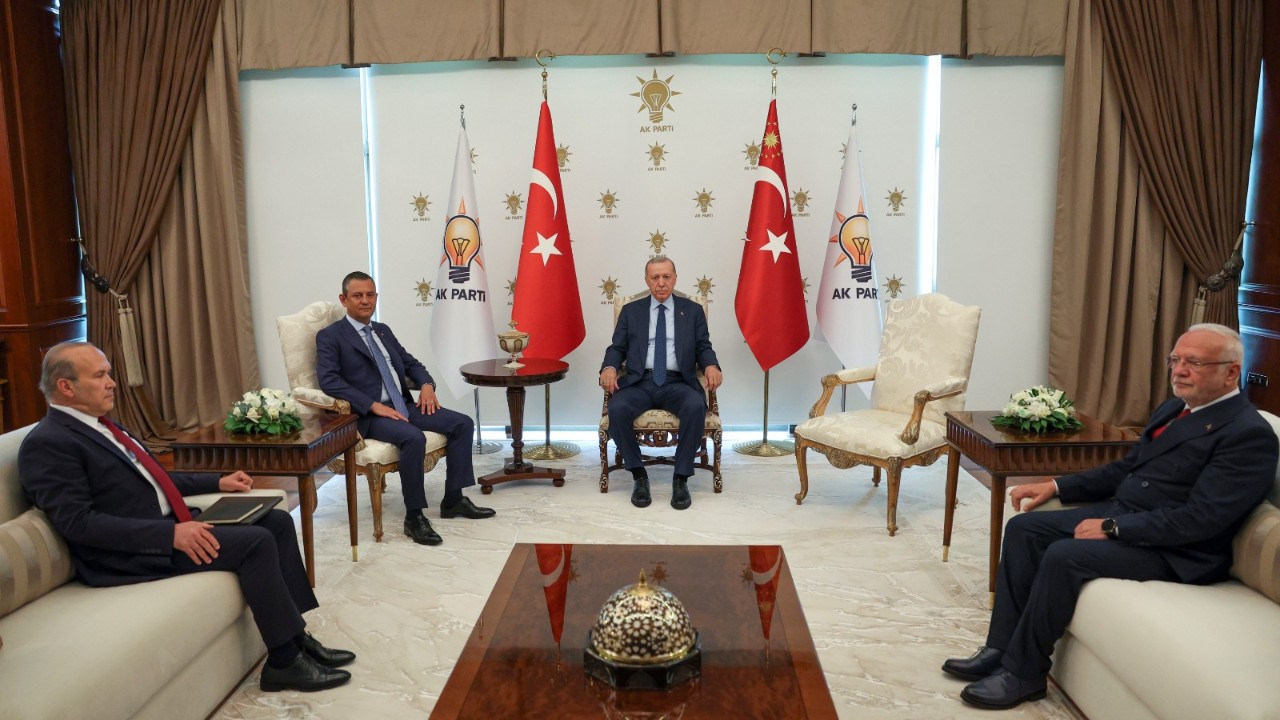 Erdoğan to pay return visit to CHP, says Turkey needs political softeningPolitics
Erdoğan to pay return visit to CHP, says Turkey needs political softeningPolitics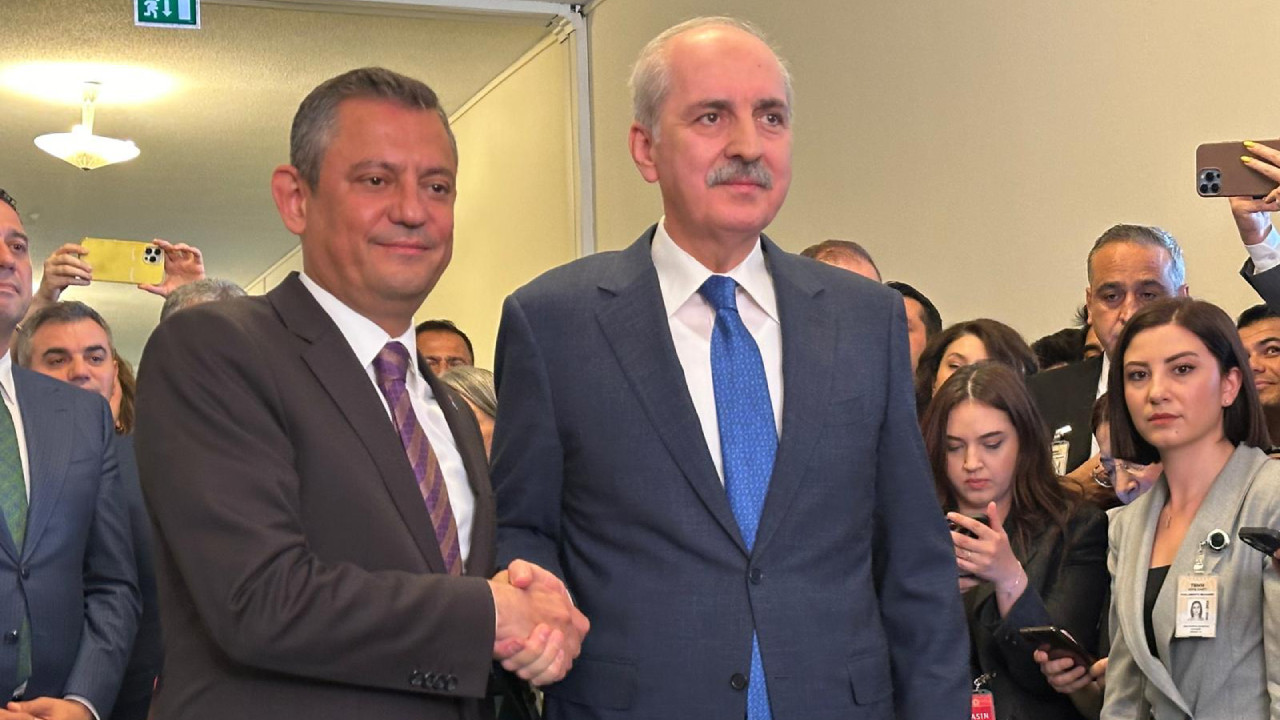 Parliament speaker starts visiting party leaders for new constitution, CHP leader demands abidance of current one firstPolitics
Parliament speaker starts visiting party leaders for new constitution, CHP leader demands abidance of current one firstPolitics